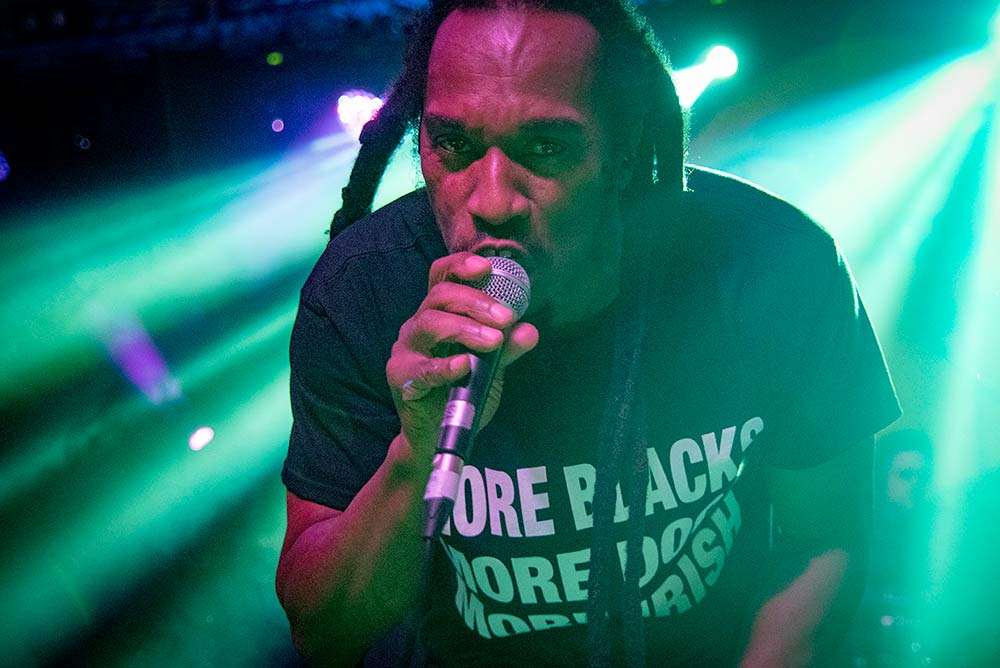My earliest memory of Benjamin Zephaniah’s words came in the form of his poem about turkeys. ‘Be kind to your turkeys this Christmas, ‘cos turkeys just wana have fun,’ became a family refrain, whenever the moment arose – relevant or not.
As young children, we found the idea of a turkey just out to enjoy himself endlessly entertaining, but in hindsight it was a hugely powerful first insight into animals as sentient beings that has stayed with us to this day.
Later on, Zephaniah was known to me mainly as the radical and political poet who turned down an MBE. Sitting down on a damp autumn night at Exeter’s Corn Exchange, I wondered how the turkey’s sense of fun would meet the politics.
On tour to promote ‘The Life and Rhymes of Benjamin Zephaniah’, his new autobiography, Zephaniah’s show is a combination of the stories that inspired his most famous poetry, and performances of the poems themselves.
His recollections of a child’s experience of casually horrific racism at school in the seventies are tied to his deeply strong relationship with his mother and their experience of domestic abuse, followed by his brush with gang crime and prison.
But the difficulties of his own childhood are dwelt on relatively lightly. What comes across most powerfully is his desire to give voice to the often voiceless and I was surprised to find a strong presence for women in his words.

His mother’s experience in the NHS as a young Windrush immigrant, to an ode to his sister ‘as a beautiful girl’ opposed to the inauthenticity of the Miss World Contest, to the much darker Death of Joy Gardner, written as a true account of the death of a young Caribbean woman at the hands of the militant ‘Extradition Squad’.
His stories of the Windrush scandal that recently made headlines have a much longer-term perspective, bearing witness to the experience of the African-American and Caribbean community in Britain over the last four decades, for whom deportation threats have always been present.
By the time he gets to a passionate performance of the incendiary ‘Us and Them’, written from the perspective of Ladbroke Grove in west London in the eighties but framed with a modern-day context of rising inequality, social injustice and global poverty, it is becoming evident that this is no nostalgic view of the past, but a powerful indictment of the failure of today.
From the decimation of Palestinian lives and society by Israel, to the media’s propaganda war around Islam and the Middle East – his performance is a sharp reminder to wake up that is so little heard in the comfortable, capitalist, middle-class bubble in which much of his audience reside.
Before the end, he takes questions, and requests the last one to come from someone under 16. A young girl asks him what he thinks of the youth climate strikes and he replies that he ‘stands with them’, applauding their understanding of the science and grounding in facts, compared to his own experience of ‘scatty’ youth activism.
Another questioner, predictably, asks when he will run as a politician. “I am not chasing power, I am more interested collective action,” he replies, to the disappointment of many in the room.
At a time of over-inflated egos and megalomaniacs running the world’s economies, it’s a glimpse of what else is possible. But perhaps what moved me most is the powerful example, mesmerising through poetry, of someone who has dedicated his life and words to the need for change, and believes the rest of us can follow.















Zephaniah is such an inspiration. Any chance to see him should be grasped. This journalist here seems to have done that and been inspired. Great article.
Thank you for bringing this delightful cheering and positive role model to my day ! Really well written article